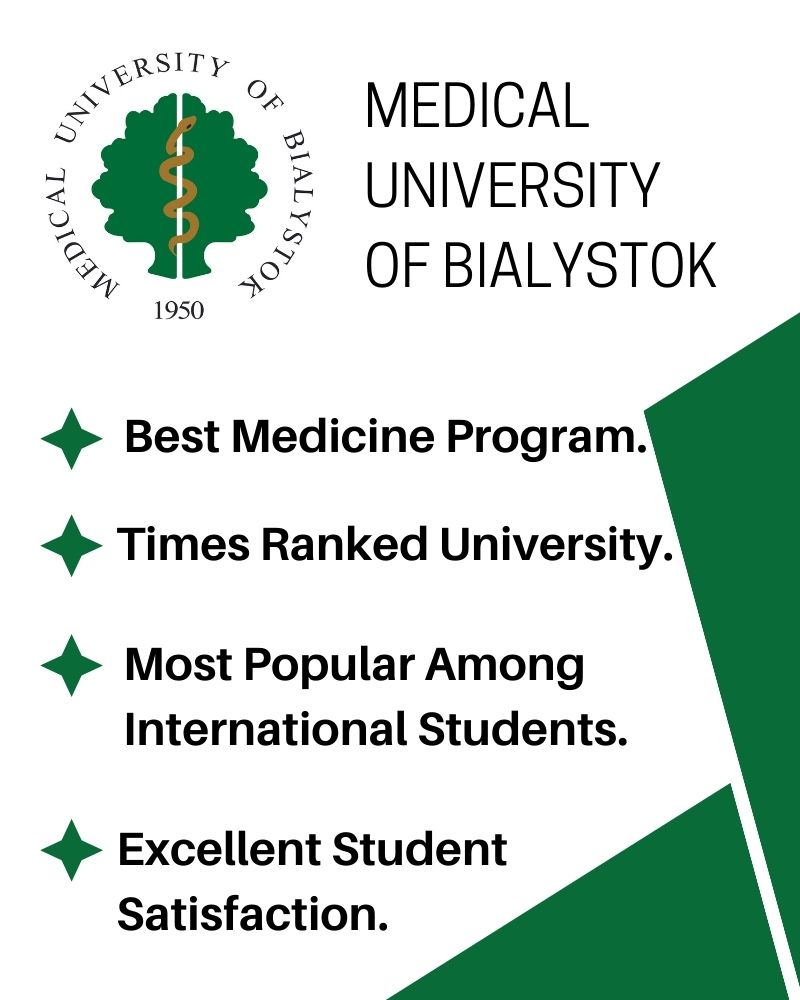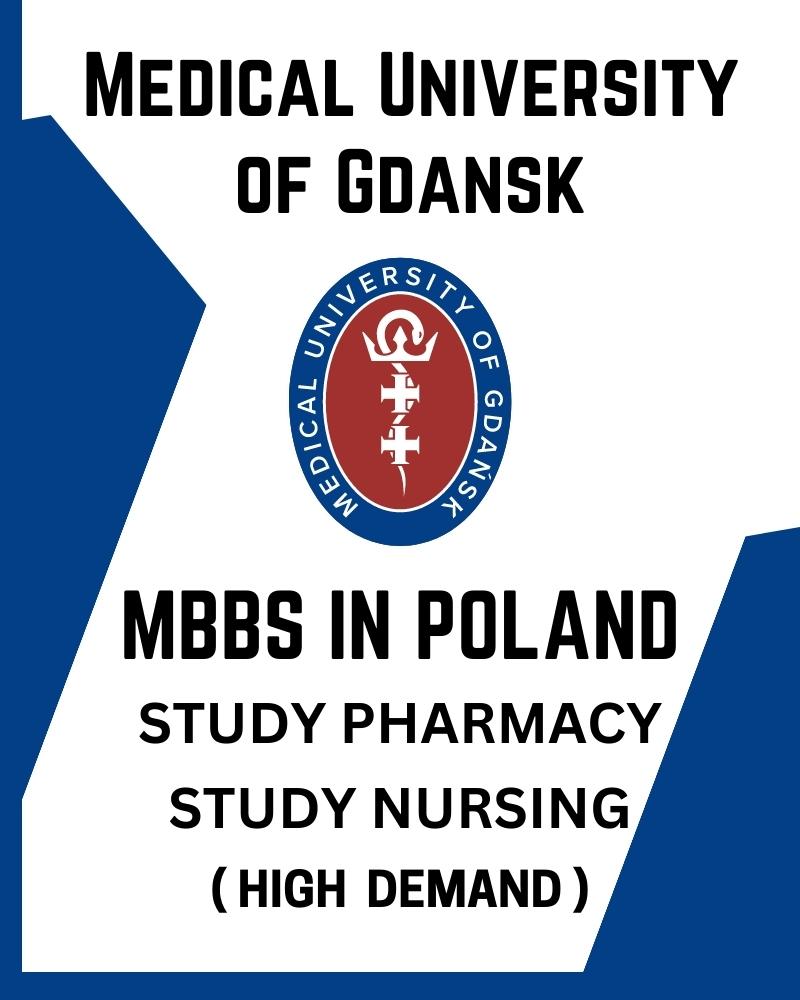Do I need to know Polish?
You do not have to know Polish in order to study in Poland. A good knowledge of English gives you an opportunity to study at the majority of Polish Universities. A few basic phrases in Polish though will make your stay more enjoyable in the country.
If you are interested in studying in English in Poland then we are prepared to help you and provide you with personal advising about study choices.
Do I need English language certificates (IELTS, TOEFL, etc.)?
In Poland, on the contrary of other countries, an IELTS or a TOEFL certification is not mandatory (but it depends on which university you choose). However, proof of English knowledge is needed.
Who can study for free in Poland?
• Holders of a valid Pole's Card (Karta Polaka)
• Citizens of the European Union, European Economic Area, Switzerland and their family members who live in Poland.
• Holders of a permanent residence permit or a long-term EU-residence permit.
• Holders of a state certificate in Polish as a foreign language (C1 level or above).
Can I study in English in Poland?
Higher education in Poland has a history dating back nearly 800 years, and the country is home to over 400 institutions - many of which now also offer study programmes in English.
Why is Poland good for study?
• Obtaining a high level of education.
• Obtaining a diploma that is recognized in all European countries.
• Free education in Polish universities with a POLE’S CARD.
• Study programmes in English or Polish.
• Learning with pleasure and satisfaction, because study programs in Poland are very interesting.
• Low prices.
• Travel around Europe and meet interesting people.
• High salaries at work and a successful career.
More and more students each year are choosing to study abroad in Poland.
What is the difference between a public university and a private one?
Comparing the quality of education of an unpopular public university and a highly rated private university, the degree obtained and the knowledge of the latter can be much better. Many private universities employ teachers from prestigious public universities. The quality of education at a Polish university determines its ranking among all Polish universities. The main difference between a public and a private university is a lower tuition fee, in public universities from 1500 EUR, and private universities from 550 EUR.
How much does it cost to study in Poland for international students?
The price depends on several factors:
• the type of university chosen: public or private;
• language taught: Polish or English;
• faculties and specialties;
• forms of studies: full-time, part-time, online.
I need a Student Status Certificate to cross the border, while I do not have a student ID, how do I get it?
If you are a student, You will receive a Student Status Certificate from the dean's office of your university. You can request such a Student Status Certificate by email.
A Student Status Certificate - confirms the receipt of student status.
How long do you need to study in Polish universities?
- degree-Bachelor's degree – 3 years (6 semesters).
- degree-Master's degree – 1.5 -2 years (3-4 semesters)
Can I start my studies in the summer semester?
Yes, there is such a possibility in Poland. You can start studying twice a year - universities conduct 2 recruitment campaigns - winter and summer.
• Winter recruitment starts around May and ends in August-September. The winter semester starts in October and ends in mid-February, with a break of about ten days for the Christmas holidays. The examination session usually takes two or three weeks, beginning in January.
• Summer recruitment runs from January to the end of February. The summer semester starts in mid-February and ends in June, with a one-week break for Easter. Summer holidays last for three months from the beginning of July to the end of September, but only for those students who passed all exams within the summer examination session (two-three weeks in June). Those who failed take the exams again in September.
If I have already received a bachelor's degree in my country, can I get a second degree in Poland?
Yes, it is possible. If you already have a bachelor's degree, you are eligible to receive a master's degree from a Polish university. You also have the option to choose a different major, even if it is different from a bachelor's degree.
Can I work in Poland with a student visa?
All full-time students who possess a student visa or a temporary residence permit, EU/EEA citizens and holders of the Pole’s card do not need a work permit at all. For more information, please visit the websites of the International Organization for Migration or the Office for Foreigners.
What documents do I need for admission?
It all depends on the choice of university, programs, specialty, and language of studies. Information about the documents is provided on the university's website before enrollment.
Are the documents provided online or do I have to submit them in person?
It all depends on the university and its requirements.
Where and when can I collect my student ID?
The student card is issued by the dean of your university. You will be able to get it as soon as you start your studies, the deadline for issuing it is set by the university where you are studying.
How to move around the city in Poland?
Public transport in Poland is developed at a very high level. There are bus and tram lines, and in the capital of the country there is also a metro. All transport works according to the schedule.
What are the prices for public transport tickets ?
Prices vary depending on the city. For example, in Warsaw, the following prices:
• 20-minute ticket , normal-3,40 PLN
• 75-minute ticket , normal-4.40 PLN
• Long-term ticket (for 30 days), normal-110 PLN
Students can expect a 51% discount on the above public transport prices.
Where and how can I buy a travel ticket?
• In the ticket machine (they are located in most transports, at bus stops and metro stations);
• At the SKM passenger service point;
• Via the mobile app (there are several applications that allow you to buy short-term travel tickets);
• Online – on the WTP website (where you can top up the Warsaw city card or electronic student ID).
Is it possible to study and work at the same time?
Yes, there is such a possibility. You can earn extra money as a waiter, courier or consultant while studying, working part-time.
How and where can I exchange currency?
The Polish currency is the złoty (PLN). One złoty (zł) is divided by 100 groszy(gr). Currently in circulation are banknotes in denominations of 10, 20, 50, 100, 200 and 500 zł and coins in denominations of 1, 2, 5, 10, 20 and 50 gr, as well as 1, 2, 5 zł. Currency exchange offices in Poland are called "Kantor" or "Kantor wymiany walut". They are usually located at train stations, in the historical centre of the city, at airports, some hotels (banks, as a rule, do not have exchange offices). In exchange offices at railway stations, the exchange rate may be lower than in others.
What are the prices of the products?
Prices for food in Poland are low, the cheapest purchases can be made in hypermarkets and markets, a little more expensive in small stores. Examples of food prices:
- Bread: from 3 PLN
- Water 5L: from 3 PLN
- Milk: 3-4 PLN
- Eggs 10 pcs.: from 6.50 PLN
- Chicken breast 1 kg: from 18 PLN
- Coffee: 5-15 PLN
What are the prices in restaurants?
How much you will spend in a restaurant depends on its standards and location. In the cheapest places, such as milk bars (bar mleczny), you can have lunch for only 10-20 PLN. You can also order food through the app: Bolt Food, Uber Eats, Wolt or Glovo.
Is life in Poland expensive?
Poland is an affordable European country with a pretty stable economy. Living costs for international students vary between 350 – 550 EUR/month. You can adjust your budget depending on the city or area you wish to study in. Larger cities such as Krakow or Warsaw require between 500 – 850 EUR/month.
Where will I live in Poland?
There are many different accommodation options in Poland. In addition to dormitories, students can live in student houses or rent a separate room or apartment. In any case, the cost of housing always depends on many factors. Among them are the city and region, location, distance from the university, the number of people in the apartment, living conditions, and much more.
How much does a dorm room cost?
If you take the capital of Poland, then an apartment in Warsaw will be a little more expensive than in other cities. Here, the cost is usually more than 200 EUR per month. But in other cities, you can find apartments up to 140 EUR per month, which will be a significant difference during the year.
Are there any discounts for students in Poland?
Yes, more information about this can be found on our website in the Useful information tab – Student discounts.
All these discounts must be valid only if you have a valid student card! However, if you are in a place where there is no information about student discounts, just ASK about it! Very often, various companies, although they do not display information about discounts for students, offer tickets/services at lower prices when presenting a student card.
Do I need a visa to study in Poland?
Foreigners need a special student visa to study at a Polish university, which is issued for a year. This can be done at the visa application center in your city or directly at the Consulate of the Republic of Poland.
During your studies or after graduating from a Polish university, after you find a job, you can get a temporary residence card (karta czasowego pobytu).
It is also issued for a year. Holders of such a document have the right to cross the borders of EU countries without a visa, and can also live and work in Poland during the validity period of the card.
Do I need health insurance?
Medical care in Poland is not free of charge. Health insurance is mandatory for all students for the entire duration of their stay in Poland. The students from non-EU/EEA countries are recommended to buy medical insurance in their home country or immediately after their arrival in Poland. Otherwise students are required to pay for any health service they get. Foreign students are also advised to purchase third party liability insurance and accident insurance.
EU citizens staying in Poland are legible for free health service, providing they present their European Health Insurance Card (EHIC).
EU citizens not having insurance in their country of residence and non-EU citizens may sign insurance agreement with the Polish Health National Fund (NFZ - Narodowy Fundusz Zdrowia) and purchase insurance for the monthly fee of 40 PLN.
Under bilateral agreements the citizens of the U.K., Sweden and Slovakia are entitled to free medical care. Under an agreement with the Czech Republic Czech students are entitled to necessary medical care in cases of sudden illness or accident.
More information can be found on The National Health Fund website: www.nfz.gov.pl.
Where and how can I get insurance in Poland?
In addition, public health insurance (umowa z NFZ) is a good option. More detailed information can be found at the link on the website www.nfz.gov.pl
Will the insurance cover the cost of treatment during my stay abroad?
Yes, more information about this can be found on our website in the Useful information tab - HEALTH INSURANCE FOR FOREIGN STUDENTS (NFZ).
Do I need a registration of address (zameldowanie, meldunek) in Poland?
In Poland there is an obligation, for both Poles and foreigners, to have their address here registered if their stay exceeds a 30 days period (for non-EU citizens) or 3 months (for EU citizens). We call it ZAMELDOWANIE. In order to fulfill that obligation you have to visit the district office (pol. urząd dzielnicy) competent for your place of residence.
In particular, it is required when obtaining a PESEL, applying for a residence permit (Karta Pobytu), applying for a job, registering a car, replacing a driver's license with a Polish one.
More information about this can be found on our website in the Useful information - Poland register tab.
Can I register in Poland if I am under 18?
Unfortunately, this is not possible. If you are a minor, you can not register! In this case, there must be one of the parents or a guardian with a notarized power of attorney from the parents!
How do I get a PESEL number?
If you need PESEL, you need to apply. More detailed information on this issue can be found on our website in the Useful information – PESEL number tab.
How much should I pay for a PESEL?
This is a free service.
Are any scholarships available?
Students with proved Polish origin (having "karta polaka") may apply for budget-funded studies on the same basis as Polish citizens. A list of scholarships provided by the Polish government and other organizations is available at: www.buwiwm.edu.pl. Other scholarship offers may be available in certain Universities. You should check it out in a course search engine and in the International Students office of the University of your choice.
What do I need to enroll?
To qualify all international applicants must first meet the minimum requirements for entry into higher education in their own country, have a matriculation certificate or equivalent document; command of English (at least on an intermediate level) is also required.
Some departments of the arts, physical education, departments preparing students for the teaching profession, medical and technical universities may organize additional aptitude tests.
All graduating from Polish institutions of higher education receive a Diploma Supplement. The Supplement is available free of charge and is issued in Polish, and on request in other languages (English, German, French, Spanish or Russian). Since Poland ratified the Lisbon Convention on Recognition of Degrees in 2004 recognition of Polish diplomas has become easier inter-nationally.
When academic year starts and ends?
In most cases the academic year at Polish universities consists of 2 semesters of 15 weeks duration each.
Fall semester starts in the beginning of October and lasts till mid-February, with two-week break for Christmas holidays and with a one-week vacation period in February. Spring semester starts in mid February and lasts till the end of June, with one-week break for Easter holidays. Summer vacation lasts from the beginning of July to the end of September.
Do I need a visa? If so, how do I apply for one?
EU/EEA students do not need any Polish visa, however upon arrival to Poland they should apply for a temporary residence permit if they stay in the country longer then 90 days. Non EU/EEA students need to arrive in Poland with a student's visa obtained at a Polish Embassy or Consulate in their country of residence. It is important to remember that visas are granted for a maximum of three months. In order to extend the stay in Poland, it is necessary to apply for a residence permit for specified period of time. For further assistance students are strongly urged to contact the International Relations Office of their university. More practical information about: coming to Poland, legalizing your stay, medical care and insurance, driving license, addresses of diplomatic missions of in Poland is available at www.msz.gov.pl (Polish Ministry of Foreign Affairs).

















